I
I’m really not supposed to be doing this, but a girl’s gotta get paid. So, here we go.
It’s been a long day. Super long. Hiked up the B702, all the way up to Liberton, doing my deliveries, and swung back round the bypass, last stop Lanark Road in Juniper Green. I make that a fifteen-mile trip around Edinburgh, give or take a few. My quads ache and I’ve got chunks of hot lead for feet. Feels good to sit my butt on this sofa and veg for a mo.
‘Would you like a cup of tea?’ Mrs McGregor asks.
‘Only if you’re offering biscuits,’ I say. Always squeeze ’em for more, and I’m famished like them Oxfam poster kids.
‘How do you take it?’ she says.
‘White, five sugars and cream on top.’
Mrs McGregor raises her eyebrows, opens her mouth, thinks better of it and shuts it again. They need me.
‘I’ll help you, dear,’ Mr McGregor says in a rich, gravelly voice. He gets up and the two of them head off to the kitchen.
I’m taking liberties ’cause them two are so minted it’s enough to set off my allergies. Look at the size of this place. Even have to take off my coat, it’s sweltering inside. This is one of them nineteenth-century stone cottages, so sturdy it could last another three hundred years. Built when land was aplenty, everything’s on the same level, save for the loft conversion. The McGregors are really proud of this place; soon as I got here they were yakking on about it. Said, ‘Did you know Thomas Carlyle and his young wife Jane Welsh stayed in this exact cottage after they got married?’ I shook my head even though I’d read the wee blue plaque on the front gate. Now, I’m not one to judge, but if I got married, I’d want to honeymoon somewhere exotic, like Ireland or some such place, not flipping Juniper Green. Each to their own and all that. ‘You do know who Thomas Carlyle is, right?’ they’d said in unison. I pretended not to know and let them yak on. Must be something they do to whoever winds up on their doorstep.
I’m no buff or nothing, but I like history as much as the next lass, and so I do know Carlyle was a historian who wrote this and that back in the day. He was into heroes and great men, had something to say about how they influenced the course of human history. Always just men, never boys and girls, and seldom women. I didn’t tell the McGregors that I found his wife Jane more interesting.
There’s a framed print of Carlyle above the fireplace directly in front of me. He’s an older dude, greying hair and well-kept beard. Rests his head tilted slightly left on his hand, index finger running up to his temple, thumb tucked under his jaw and the other three folded in. Posed to make him look like a thinker, brow lightly creased, but there’s also a dreamy look in his eyes that’s kinda endearing. I swear the old historian comes out like he’s on a telephone to the future. Don’t know if he had our shabby present in mind, though. His was a time of voyages. A time of weird and wonderful new things flowing in from the far-flung outposts of the British Empire via the Port of Leith – now all we get is flotsam washing back. They believed in progress in them days, high-minded ideas and all that jazz. Now we can’t even look past tomorrow. The historian swallowed up by history . . . ain’t time a right bastard?
I sink back into the cushions on the couple’s large sofa. The room’s stuck in some past era along with the Carlyles. Light shade of terracotta paint on the walls, antique chest serving as the coffee table, copper bucket with tongs by the fireplace, and an old-style rocking chair in one corner. The carpet under my feet looks Persian but could be from anywhere. It’s well worn; the threadbare look gives it that aged feel this room’s going for.
It’s dark outside the massive windows. The light from this room bathes the hedges outside in an ominous shade. The sound of the McGregors pottering in the kitchen drifts out to me. Mrs McGregor is a small woman and her husband is more long than tall – it’s like a Great Dane married a Cockapoo.
‘I’m not sure about this,’ Mrs McGregor says. They’re trying to be quiet. Failing miserably. I hear the sound of something metallic hitting the counter.
‘She does look a bit young,’ Mr McGregor replies. ‘What is she, twelve? She’s got green dreadlocks and black lipstick, for Christ’s sake. What is that even – goth, punk, I don’t know.’
‘I was told we were getting an older woman with experience. I think we should—’
‘Guys, I can hear you,’ I call out. ‘I’m right here, you know?’
Things go quiet in the kitchen. Very quiet. Only the noise of the boiling kettle filters through. I rub my hands on my thighs. Shouldn’t have said anything, but I’m tired and hungry and that makes me irritable. And I’m not messing about. I’ve come to do a job – I need the money.
The McGregors come back in with red faces and my tea. There’s a slight tremor in Mrs McGregor’s hands as she places the tray down in front of me. I grab a scone, bite it and feel better right away. Tasty, must be home-made, and just the right spread of butter on it too.
‘I know you called for my grandma, but she don’t do house calls no more. I’ll take care of it for you,’ I say, chow in my mouth. I wash it down with tea from a proper china cup. I’m even tempted to hold a pinkie out.
‘We didn’t mean to . . . It’s just that we’ve had some people try to take care of this problem before and it hasn’t exactly worked out as planned,’ Mrs McGregor says.
‘Who did you call in?’
‘The bishop himself – Episcopalian.’
I get it right away. Those guys come in guns blazing, Jesus the shit out of everything, maybe even spray a bit of holy water here and there, chant some jazz from the Book of Occasional Services and shoot off. It’s hit or miss with them: sometimes it works, sometimes it don’t. But if there’s something strange in your postcode, who you gonna call?
‘These scones are exceptional,’ I say. We may be here a while.
I’ve asked the McGregors to turn off the lights around the house, and the only illumination comes from a lamp in the corner of the room. The light creeps up the walls, painting a half-moon on the ceiling, and everything else is in the shadow of the lampshade. The telly’s off, and in the silence we can hear each other breathe. The couple hold hands, sitting in the two-seater nearest the window, so I’m on my own on the big sofa.
Been here three hours already. It’s not yet the witching hour, but I feel a slight chill in the air, the subtle drop of temperature that makes me reach for my coat, until I remember myself.
‘How much longer?’ Mr McGregor asks in a whisper.
I hold up my hand, stop him from speaking. He might as well be asking about the length of a piece of string. In any case, breaking the silence will only ruin things. Already asked them both to be good little church mice.
The chill in the still air hits them. Condensation vapour comes out of their mouths. They move closer to one another, the Mr throwing an arm around the Mrs. The little hairs on my arms rise, and goosepimples prick up all over my skin.
The picture of Thomas Carlyle clacks against the wall. The noise is awful in the silence. I sit up, lean forward and put my elbows on my knees, clasping my hands together. The lamplight flickers. The flowers on the mantelpiece rustle, shedding fresh petals onto the floor. A creaking noise comes from the wood beams in the ceiling. Something sickening wafts through the air, less a scent – it’s a feeling of the forbidden, of sin, decadence, the smashing of a taboo that leaves an open wound on the soul of the world. The tongs strike the copper bucket, ringing out like a Chinese gong.
Mr McGregor makes a fist and bites down on his knuckles. Something turns the doorknob and a squeak escapes Mrs McGregor’s throat. The door opens and shuts with a bang. It opens again and shuts. Opens. Shuts. The bucket. Picture. A statuette falls to the floor.
‘God help us,’ Mr McGregor wails, and crosses himself – left shoulder, then right.
Curtains fluttering, the locked windows rattling, commotion and chaos, small objects flung through the air. An ethereal grey figure rushing hither and thither in the dimness, knocking furniture over. This must be an old spectre for it to have the power to so touch the material world. I watch as it throws the door open again.
‘Are you done?’ I say, looking at the abhorrent apparition.
It looks back at me, all dark eyes, with an eerie tunnel running through its face in place of a mouth. It screams, a horrible squeal like a slow cut throat in a slaughterhouse. A wind rises in the room with its squeal, and it rushes towards me, mouth wide open from floor to chin as though it would eat me. The pages of a magazine on the coffee table flip open as the spectre bears down and stops right in front of my face with a terrible howl.
‘I said, are you done, sir?’ I reach for my backpack and stand up. ‘This is quite the racket you’re making here.’
It replies, screaming vile, broken sounds, an anguished cry of rage. Its approximation of a face is coated with grey smears of soil. And a scar runs across its throat, wide open like a second pair of lips. Old phantoms can be terrible to behold and this one’s no exception. I study its form as I get the mbira from my backpack. It’s an ancient musical instrument about the size of a small laptop. Mine’s a simple one, without any adornments, just metal keys on a wooden block – thick like a heavy-duty chopping board. The McGregors are huddled together still, watching me. They can’t see what I see, but the racket’s stopped. The mbira’s solid in my hands, the keys hard under my thumbs. I play a slow tune, ‘Gavakava’, something to bring the tempo right down, soothe tempers and ease the mood. I’m not here looking for a fight.
‘Clap your hands to the beat,’ I say to the couple. Then I turn back to the ghoul. ‘We can do this the easy way or the hard way. It’s up to you.’
It shrieks again, makes to threaten me, and I up my tempo, driving it back to the wall with a furious melody and pinning it there. I alter the harmonics of my music to capture the tether holding it to this world. The ghost howls in pain and I ease the beat back to my original slow melody. I have Authority here, and it gets the message. After years of haunting these grounds, it’s felt the roots that keep it here cut out from underneath it. I’m basically removing a tree stump and that can be a bit tricksy, even with all the right tools. It shrinks before me into something small and sobs like a child.
‘You’re not supposed to be here. I don’t know what unfinished business you have, but this is your last night on this plane. I’ll give you two choices: you can either make a small request – one within reason – and leave of your own volition, never to come back. Or I cast you out to the Other Place. It’s all the same to me. Speak now.’
There are many realms beyond our own, and the dead roam or rest there, depending on their kink. Ghosts with unfinished business stick in a realm glued to our world. But the Other Place is a one-way street – banish one there and they can never come back. The brochure for it promises the gnashing of teeth and other unsavoury stuff too, so the mere mention of it shows I’m dead serious.
It raises itself up from the corner where it’s crouched, and I see at last the face of a young man, barely twenty. His fate was sealed by cutthroats years before this house was even built. And he was buried in a shallow grave in the field that eventually became the grounds of this place. Through its two mouths, one natural, the other made by a sharp blade, I hear his story and bear witness to an injustice that had refused to be buried by earth and time.


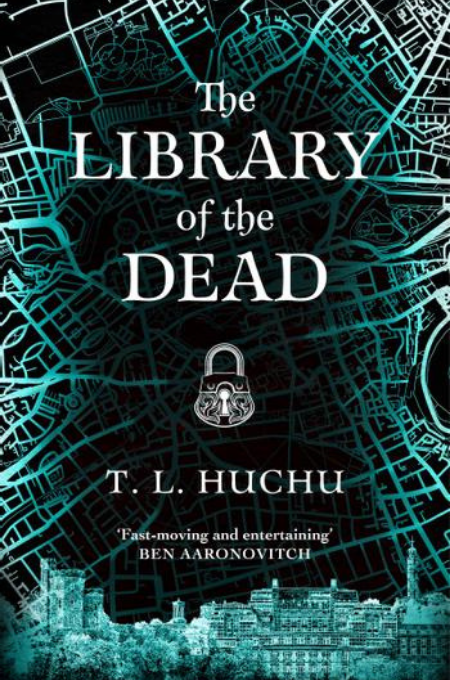

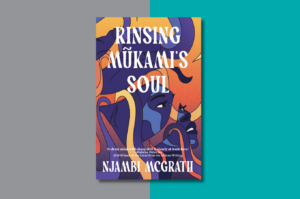

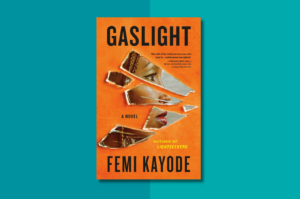
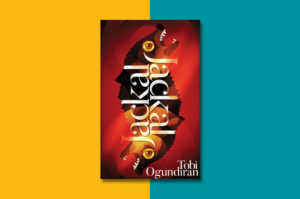
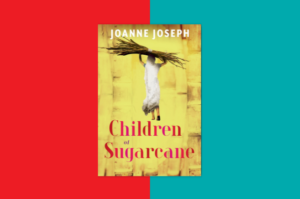

COMMENTS -
Reader Interactions